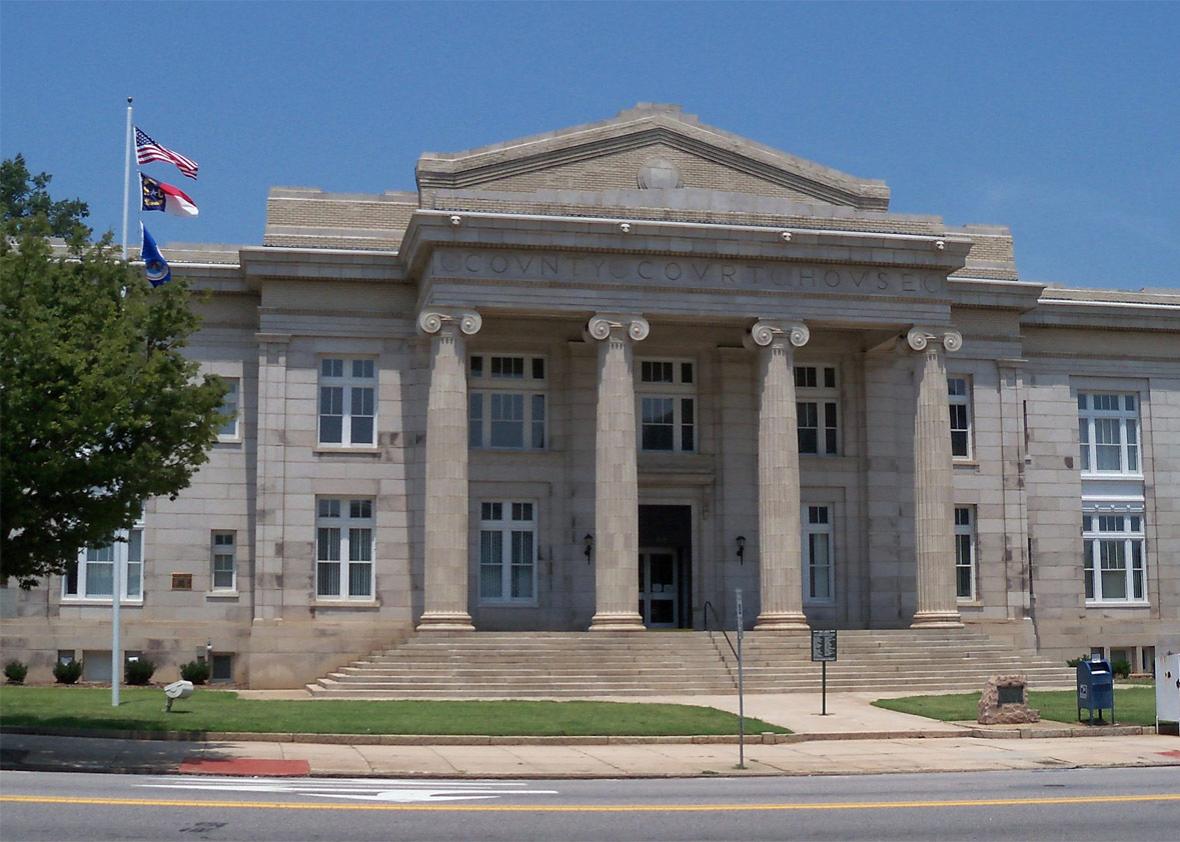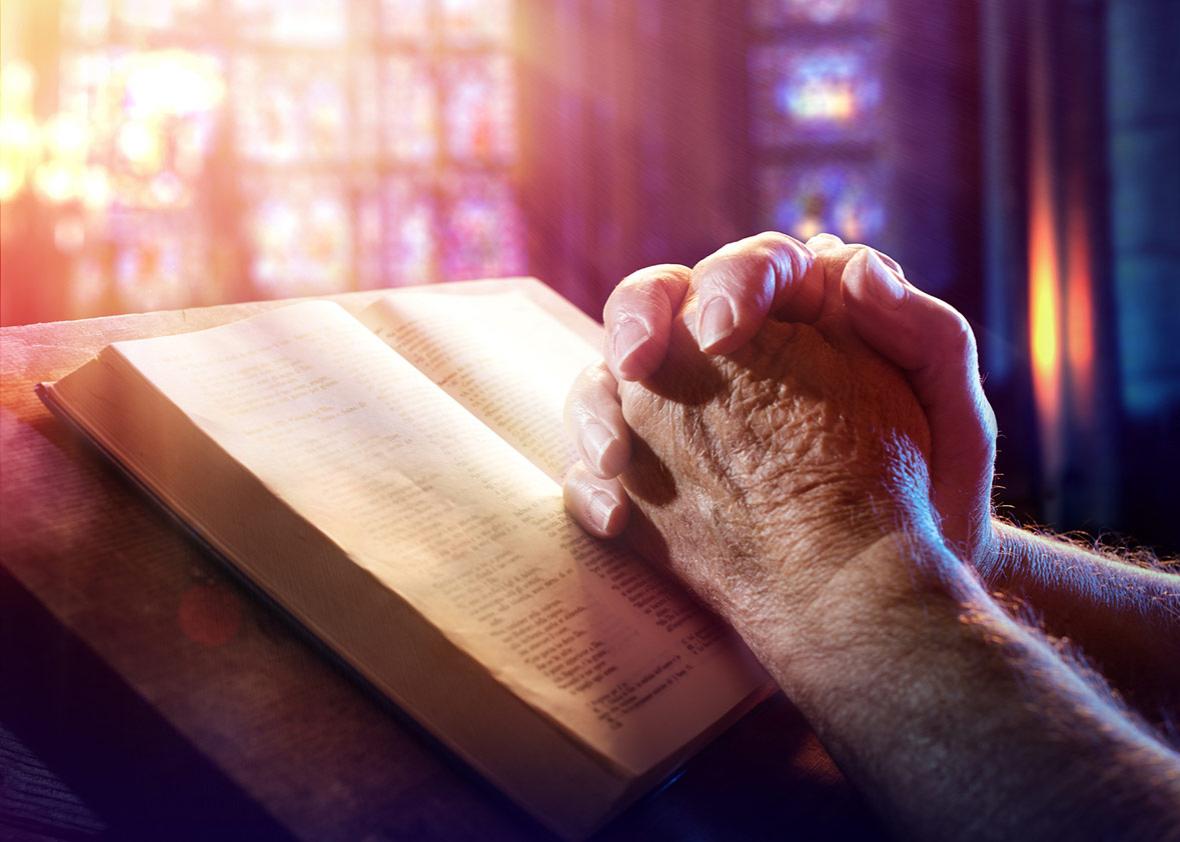Last week, United States Attorney General Jefferson Beauregard Sessions III told a group of Christian religious liberty lawyers that they are under siege. Bemoaning the ways “Americans have felt that their freedom to practice their faith has been under attack,” Sessions pledged that his “Department of Justice will never allow this secular government of ours to demand that sincere religious beliefs be abandoned. We will not require American citizens to give intellectual assent to doctrines that are contrary to their religious beliefs.” (Sessions also cited Martin Luther King as part of the religious liberty movement he was feting, despite the fact he was once deemed unfit to be confirmed as a federal judge because of allegations of racist remarks and prosecutions in Alabama.)
The same Jeff Sessions who has announced his DOJ will ramp up federal civil forfeiture laws that take property from those who haven’t been convicted, a predatory practice Clarence Thomas decried this year, is worried about the real victims. When it comes to sentencing and policing policies that fall most heavily on people of color, the attorney general is pitiless. When it comes to those who wish to pray in the public square, Sessions’ compassion is bottomless.
Meanwhile, members of the Trump Cabinet are attending Bible study with a religious leader who says, “God only hears the prayers of leaders and citizens who are upright, who live righteously through faith in Jesus Christ.” And the House Appropriations Committee voted last week to bolster President Trump’s executive order weakening the Johnson Amendment, the tax provision that conditions the tax-exempt status of religious and other charitable institutions on not endorsing candidates for public office.
Want to listen to this article out loud? Hear it on Slate Voice.
In other words, while sectarian religious groups are in every way ascendant in the Trump era, and whatever wall once existed between church and state looks ever more like a speed bump, arguments for yet more religious freedom never wane in the courts. Arguments in favor of any separation of church and state are increasingly cast as bristling religious animus or even hate speech. Against this rancorous, zero-sum backdrop, the majority opinion in Lund v. Rowan County, a legislative prayer case out of the 4th U.S. Circuit Court of Appeals, serves as a sober reminder that we need to work hard to balance competing faiths and that the discourse of victims and haters impoverishes us all.
On Friday, the 4th Circuit, sitting en banc, decided by a 10–5 margin that the legislative prayer practice used by the County Board of Commissioners in Rowan County, North Carolina, violated the Establishment Clause of the Constitution because the prayers were offered exclusively by the five elected commissioners, each of whom was a Christian. For more than five years in Rowan County, 97 percent of the board of commissioners meetings opened with a prayer that invoked “Jesus,” “Christ,” or the “Savior” and not infrequently advised meeting attendees, who were required to stand, that they needed to accept Christ as their lord.
The three non-Christian plaintiffs in this litigation, brought by the American Civil Liberties Union in 2013, argued that this prayer practice differed substantially from that permitted by the Supreme Court in 1983’s Marsh v. Chambers and 2014’s Town of Greece v. Galloway. They charged that the policy advanced only Christianity and that as attendees of the meetings they felt coerced into standing for the prayer. The board responded that there was no formal prayer policy and that dissenters were free to leave the room.

AlexiusHoratius/Wikipedia
In 2015, a federal judge struck down the Rowan County prayer scheme as unconstitutional, but a three-judge panel of the 4th Circuit determined in 2016 that there was nothing wrong with it. The 4th Circuit agreed to hear the case en banc and reversed the three-judge panel last week.
Writing for the majority, Judge J. Harvie Wilkinson III, a Reagan appointee who once found himself on George W. Bush’s shortlist for chief justice, noted that the situation was precisely as politically divisive as it appeared. As soon as Rowan County’s all-Christian prayer practice had become controversial, several commissioners declared they would never stop praying in Jesus’ name, and one even volunteered to go to jail for the cause. Another issued a statement saying he cherished the opportunity to be led through this persecution of the faithful by God.
By this point, the prayer debate had morphed from a cry for religious tolerance into a popular referendum on the persecution of the one true religionists. An objector to the policy was booed at town meetings. Two prospective board members who ran in opposition to the prayer policy lost out to incumbents who favored it. As Wilkinson notes, this wasn’t a neutral prayer policy: “[A]n identification of the state with one and only one faith is not, we repeat, some marginal or peripheral constitutional violation. … The overwhelming majority of the Board’s invocations referenced tenets of Christianity. Over a period of more than five years, only 4 of 143 prayers were non-sectarian.” On multiple occasions, as the majority notes, invocations proclaimed that Christianity was exceptional and other faiths inferior. Prayers were directed not at the lawmakers themselves but at the public in attendance.
As Wilkinson notes in his opinion, to understand whether there was an Establishment Clause violation requires a deep dive into context. In 1983 in Marsh v. Chambers, the Supreme Court upheld the Nebraska legislature’s practice of opening its sessions with nonsectarian prayers delivered by a paid chaplain. That ruling was based on the long-standing tradition of legislative prayer dating back to the colonial period. But the Marsh court cautioned that legislative “prayer opportunities” could not be “exploited to proselytize or advance [a particular faith] or to disparage any other.” Thirty years later, in Town of Greece, the court again sanctioned a legislative prayer scheme, one in which outside faith leaders were allowed to offer prayers. This was allowable even though the town selected almost exclusively Christian chaplains, so long as the guest chaplains did not “denigrate nonbelievers or religious minorities, threaten damnation, or preach conversion” or proselytize or advance or disparage a particular faith.
Wilkinson writes that the Rowan County scheme is different for two reasons. These are not outside chaplains offering prayers, and because only board members can lead, the system establishes a “closed-universe” of Christian prayer-givers. Wilkinson rejects the notion that the plaintiffs are being hypersensitive and that they were free to stay seated or leave. “Plaintiffs were placed in a situation that required them to decide ‘between staying seated and unobservant, or acquiescing to the prayer practice.’ ”
Analyzing each particular of the prayer practice, Wilkinson finds that if the Establishment Clause is to mean anything, it must preclude the conduct seen in Rowan County. As he explains it:
The Establishment Clause does not permit a seat of government to wrap itself in a single faith. But here elected officials took up a ministerial function and led the political community in prayers that communicated exclusivity, leaving members of minority faiths unwilling participants or discomforted observers to the sectarian exercises of a religion to which they did not subscribe. The solemn invocation of a single faith in so many meetings over so many years distanced adherents of other faiths from that representative government which affects the lives of all citizens and which Americans of every spiritual persuasion have every right to call their own.
In a pointed and extremely personal dissent, Judge Paul Niemeyer accuses the majority of striking “at the very trunk of religion, seeking to outlaw most prayer given in governmental assemblies, even though such prayer has always been an important part of the fabric of our democracy and civic life.” Niemeyer, who’s gone round and round on this issue with Wilkinson for years—these two are the Road Runner and Coyote of the religion clauses—accuses the majority of wielding the Establishment Clause as an “anti-religion clause” and insists that only a prayer practice that “denigrates or interferes with the religious practice of others” can be deemed unconstitutional. He demands that the “proper respect for a practice so venerated and important to our democratic order does not include the niggling of civil courts assessing whether the practice ‘pointedly’ invokes a particular name of the Divine to bless and solemnize the governmental proceeding.” Oh, and in a deeply strange turn he accuses Wilkinson by name of acting in “harmonious parallelism” with the ACLU.
Wilkinson, for his part, closes with a thought for the two religion clauses—free exercise and establishment—that is worth contemplating as we wade into the religious trench warfare we will be enduring throughout the Trump years. “The First Amendment in the end is not either/or, but both/and,” he writes. “Believing that free religious exercise in Rowan County may likewise further the values of religious welcome and inclusion, we affirm the judgment of the district court.”
Chris Brook, legal director of the ACLU of North Carolina, said in an email that this was a win for fundamental American freedoms. “Freedom from religious coercion is not a liberal or conservative value; it is a core American value,” Brook wrote. “No one should have prayers forced upon them by government officials as the price for fully participating in a meeting of their county commission.”
Rowan County is likely to appeal, which means this case is almost unavoidably headed to a Supreme Court that is primed and ready to double down on either/or thinking in the context of faith and perhaps everything else. Seen in that light, Judge Wilkinson’s majority opinion reads a lot like a prayer to the vanquished gods of political pluralism and tolerance, a paean to an America that is fading away.
